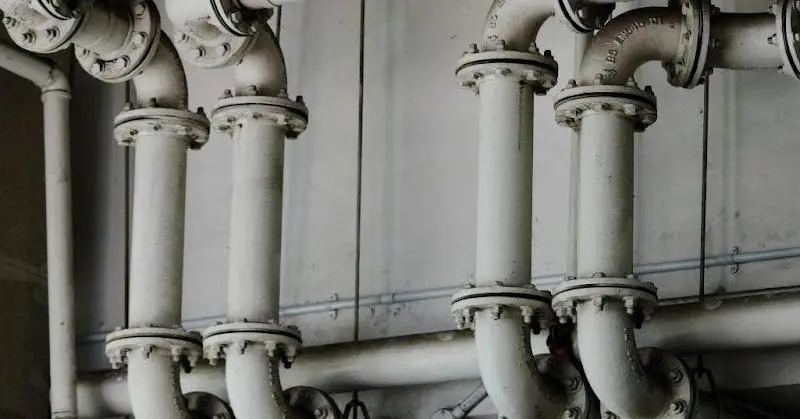Commercial facilities, from office complexes to retail spaces, are significant investments requiring diligent care to maximize their usability and value over time. In cities like Monroe, Louisiana, where businesses play a vital role in the community’s growth, proper maintenance ensures these facilities remain operational and appealing.
Proper maintenance isn’t just about immediate fixes—it’s about creating a sustainable, efficient environment that benefits both owners and occupants. A proactive approach to upkeep helps reduce unexpected repairs, lower operational costs, and preserve the facility’s functionality and appearance.
Additionally, consistent care ensures the safety and satisfaction of everyone who uses the space, emphasizing its long-term value.
Importance of HVAC System Maintenance
Heating, ventilation, and air conditioning (HVAC) systems are integral to maintaining comfortable and safe environments within commercial facilities. Over time, HVAC systems can become less efficient due to wear and tear, leading to higher energy consumption and inconsistent performance. Regular maintenance, such as cleaning air ducts, replacing filters, and inspecting system components, ensures these systems function optimally.
Poorly maintained HVAC systems can contribute to indoor air quality issues, affecting the health and productivity of employees and visitors. Dust, allergens, and pollutants often accumulate in neglected systems, posing health risks.
Moreover, inefficient HVAC units consume more energy, driving up utility bills. Investing in routine inspections and energy-efficient upgrades can significantly improve the system’s longevity and reduce long-term costs.
The Role of Plumbing in Facility Maintenance
Plumbing systems play a crucial role in the daily operations of commercial facilities, affecting everything from sanitation to water usage efficiency. When it comes to commercial plumbing Monroe has a lot of options to help businesses manage these essential systems.
Choosing reliable services for regular inspections and repairs prevents costly issues like leaks, pipe corrosion, or sewer backups. Neglecting plumbing can lead to water damage, mold growth, and even structural degradation, which can incur significant expenses.
Effective maintenance includes ensuring pipes are clear of blockages, faucets and fixtures are working efficiently, and the water pressure remains optimal. Advanced technologies, such as leak detection systems, can further enhance maintenance routines, offering real-time monitoring to catch small problems before they escalate.
By keeping the plumbing in top condition, businesses ensure smooth operations and avoid disruptions caused by plumbing failures.
Preserving Structural Integrity
The structural components of a commercial facility, such as walls, roofs, and foundations, form the backbone of the property. Routine inspections and timely repairs prevent minor issues from becoming significant problems.
Cracks in walls, leaks in the roof, or uneven flooring can signal deeper structural concerns that need immediate attention. Addressing these early on safeguards the facility’s overall stability and minimizes the risk of costly renovations.
Roof maintenance, for instance, is critical in preventing water damage. Regular inspections can identify issues like loose shingles, clogged gutters, or weakened flashing. Foundation checks ensure the building remains level and stable, avoiding long-term risks like sinking or cracking. Similarly, maintaining exterior finishes, such as paint and siding, protects the structure from weather-related wear and tear, keeping the facility both functional and visually appealing.
Elevating Facility Safety and Compliance
Safety is a cornerstone of commercial facility maintenance, directly impacting the well-being of employees, customers, and tenants. Fire safety systems, elevators, and emergency exits require frequent inspections to comply with regulations and ensure functionality. Facilities that fail to meet safety standards may face penalties, lawsuits, or reputational damage.
Fire alarms and sprinkler systems should undergo regular testing to confirm they’re operational. Electrical systems also demand careful monitoring, as faulty wiring can lead to power outages or fire hazards. Elevators and escalators must adhere to strict safety codes, and routine servicing ensures smooth operation and minimizes risks of accidents. Prioritizing these safety measures not only extends the facility’s lifespan but also builds trust with its users.
Extending the Life of Floors and Finishes
Flooring and interior finishes are among the most visible aspects of a commercial space. High-traffic areas, in particular, are prone to wear and tear, including scratches, stains, and fading. Regular cleaning and preventive measures, such as applying protective coatings, significantly enhance the durability of these surfaces.
Carpets and rugs, for example, can trap dirt and allergens if not cleaned routinely, diminishing their quality and contributing to poor indoor air quality. Hardwood floors benefit from periodic polishing and refinishing to maintain their appearance and strength.
Similarly, maintaining walls, ceilings, and fixtures helps preserve the overall aesthetic appeal of the space, creating a welcoming environment for occupants and visitors alike.
Landscaping and Outdoor Maintenance
The exterior of a commercial facility is as important as its interior. Well-maintained landscaping enhances curb appeal and leaves a positive impression on clients and customers. Overgrown vegetation, cracked pavements, or poorly lit parking lots can detract from the facility’s professional image and even pose safety hazards.
Regular landscaping tasks, such as trimming trees, mowing lawns, and removing debris, prevent issues like pest infestations or root damage to underground systems. Proper maintenance of walkways and driveways ensures they remain safe and free of hazards. Adding energy-efficient outdoor lighting improves security while enhancing the facility’s nighttime aesthetics.
Embracing Preventive Maintenance Programs
Preventive maintenance programs are among the most effective ways to prolong the lifespan of a commercial facility. These programs involve scheduled inspections, routine servicing, and systematic replacements of aging components. Unlike reactive maintenance, which addresses issues only after they arise, preventive strategies focus on identifying and resolving potential problems early.
Digital tools and maintenance management software can streamline this process, providing detailed records of inspections, repairs, and replacements. This data-driven approach ensures every aspect of the facility receives the attention it requires, reducing the risk of unexpected failures and improving overall operational efficiency.
Environmental Benefits of Proper Maintenance
Proper maintenance also contributes to environmental sustainability. Facilities that prioritize energy-efficient systems, waste management, and water conservation reduce their environmental footprint while cutting costs. Regularly maintained equipment consumes less energy, while sustainable practices, such as recycling and composting, enhance the facility’s green credentials.
For instance, upgrading to energy-efficient lighting and appliances not only reduces electricity bills but also extends the lifespan of these components. Similarly, water-saving fixtures and eco-friendly landscaping practices conserve resources and reduce utility costs. A commitment to sustainability benefits the environment and reflects positively on the facility’s brand image.
All in all, extending the lifespan of commercial facilities requires a multifaceted approach to maintenance that addresses everything from plumbing and HVAC systems to structural integrity and aesthetic appeal. Proactive care ensures operational efficiency, enhances safety, and reduces long-term costs, ultimately preserving the value of the property.
Whether through routine inspections or preventive maintenance programs, investing in proper upkeep is a crucial strategy for safeguarding these significant investments.








